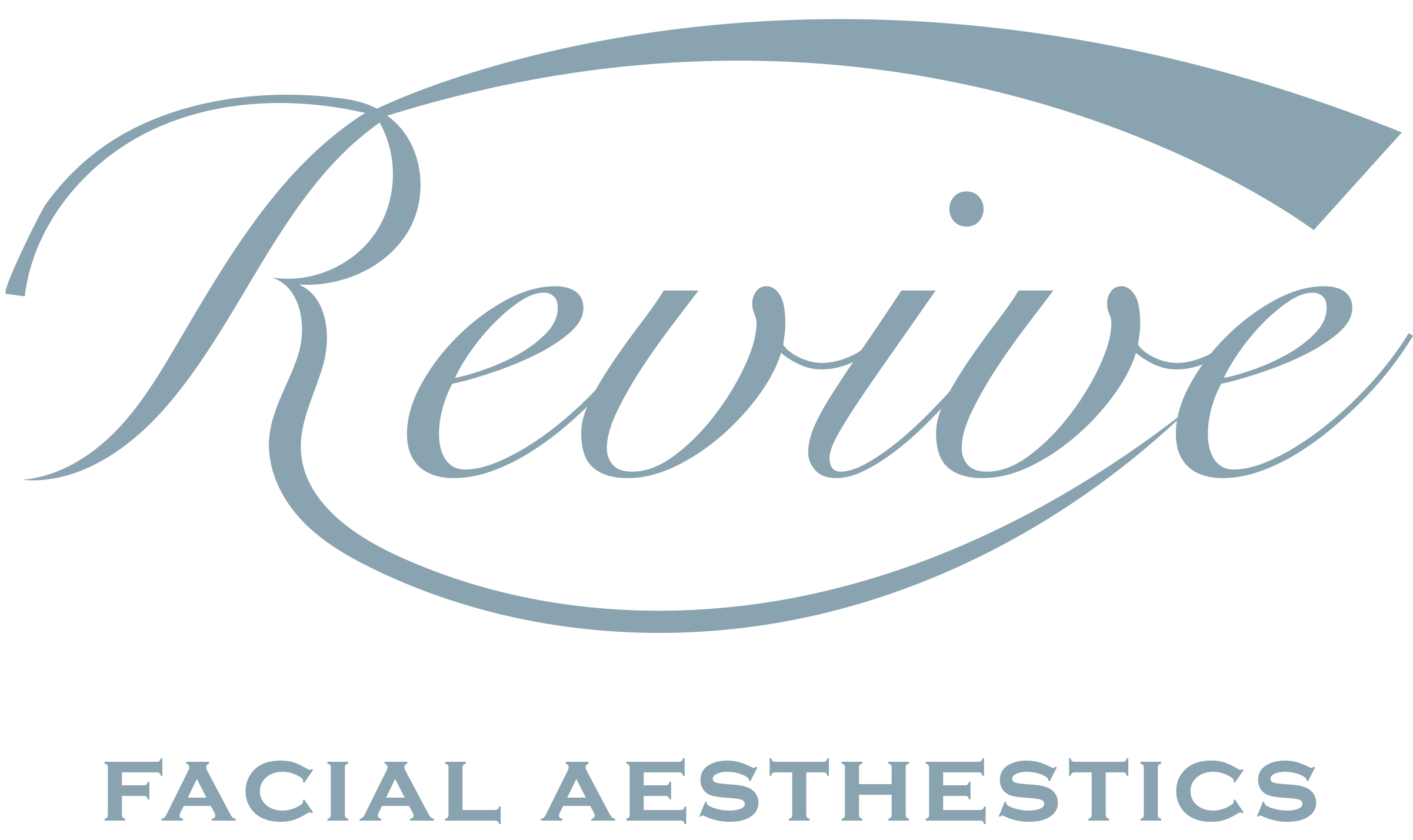
Major Signs You Need Glasses
Welcome to our blog post on the major signs that indicate you may need glasses! Have you been experiencing frequent headaches or struggling with blurry vision? Well, it might be time to consider getting an eye exam. In this article, we will explore some common indicators that your eyesight may not be as sharp as it used to be. So, whether you're squinting at street signs or finding it difficult to see in low-light conditions, keep reading to discover if a trip to the optometrist is in order. Don't worry – we've got your eyes covered!
Blurry Vision
Blurry vision is one of the most common signs that your eyesight may be deteriorating. It can manifest in various ways, such as difficulty focusing on objects up close or far away, seeing hazy outlines, or experiencing general blurriness in your field of vision.
If you find yourself squinting more often than usual to try and bring things into focus, this could be a clear indicator that you need glasses. Blurry vision can make everyday tasks like reading books or working on a computer screen challenging and uncomfortable.
You might also notice that things appear fuzzy when you're driving or watching television. This can be dangerous and put unnecessary strain on your eyes. Don't ignore these warning signs – they could signify the need for corrective lenses.
Blurry Vision doesn't discriminate based on age either. Both young children and adults can experience this symptom. So, if you've been brushing off blurry vision as just a temporary inconvenience, it's time to prioritize your eye health and schedule an appointment with an optometrist.
Remember, clear vision not only enhances your daily life but also ensures safety and prevents potential accidents caused by poor visibility. So don't hesitate – take control of your visual clarity today!
Frequent Headaches
Do you find yourself reaching for the painkillers more often than not? If you're experiencing frequent headaches, it could be a sign that you need glasses. While headaches can have various causes, one common factor is eye strain.
When your eyes are constantly straining to focus on objects, it can lead to tension in the muscles around your temples and forehead. This tension can result in throbbing headaches that seem to linger throughout the day.
If you notice that your headaches are accompanied by blurred vision or difficulty reading small print, this further supports the idea of needing glasses. Squinting and straining to see clearly puts added stress on your eyes and can contribute to those incessant headaches.
It's important not to ignore these signs and assume they will go away on their own. By getting an eye examination from a qualified optometrist, you can determine whether glasses may be the solution for alleviating your chronic headache symptoms.
Remember, frequent headaches aren't something you have to live with. With proper eyewear, you'll not only enjoy clearer vision but also bid farewell to those pesky head pains!
Difficulty Seeing at Night
Have you ever found it challenging to see clearly when the sun goes down? Maybe you struggle to read road signs or make out objects in low-light conditions. If so, you may be experiencing difficulty seeing at night, which can be a sign that you need glasses.
When our eyes are healthy and functioning properly, they adjust to changes in lighting effortlessly. However, if your vision becomes blurry or hazy when it gets dark outside, this could indicate a problem with your eyesight. It's important not to ignore these symptoms as they can impact your ability to drive safely or navigate in dimly lit areas.
One common cause of difficulty seeing at night is called "night blindness." This condition occurs when the cells in your retina responsible for detecting light stop working correctly. As a result, it becomes harder for your eyes to adapt and distinguish objects in darkness.
If you notice that nighttime visibility has become increasingly challenging for you lately, it's essential to schedule an eye exam with an optometrist. They will be able to assess your vision and determine if glasses are necessary to improve your nighttime sight.
Glasses equipped with anti-reflective coating can significantly reduce glare from headlights and other bright lights while driving at night. Additionally, prescription lenses tailored specifically for low-light conditions may enhance contrast sensitivity and overall visual acuity during nighttime activities.
Remember that struggling with night vision should never be taken lightly. By addressing this issue promptly through proper eyewear correction, you'll ensure better safety on the road and more comfortable navigation after dark.
Eye Strain
Do you often find yourself squinting or rubbing your eyes after hours of screen time? If so, you may be experiencing eye strain. Eye strain occurs when your eyes become fatigued from a prolonged focus on digital screens, reading small print, or engaging in activities that require intense visual concentration.
One of the main causes of eye strain is excessive use of electronic devices such as computers, smartphones, and tablets. Staring at these screens for extended periods can cause your eyes to work harder than usual, leading to discomfort and fatigue.
Another common cause of eye strain is improper lighting conditions. When the lighting in a room is too bright or too dim, it can put unnecessary stress on your eyes. Poor posture while working or reading can also contribute to eye strain.
The symptoms of eye strain vary from person to person but often include headaches, blurred vision, dry or watery eyes, sensitivity to light, and difficulty focusing. If left untreated, chronic eye strain can lead to more serious conditions like computer vision syndrome.
If you experience persistent symptoms despite making these adjustments or if they worsen over time, it's important to consult an optometrist for a comprehensive eye examination. They will be able to determine whether glasses are necessary and prescribe the appropriate prescription lenses tailored specifically for your needs.
Seeing Double
Have you ever experienced the strange sensation of seeing two of everything? It's not a party trick or an illusion but rather a sign that your eyes may need some assistance. Seeing double is when your brain interprets one image as two separate images, causing confusion and making it difficult to focus.
There are several reasons why you might be seeing double. One common cause is refractive errors, such as astigmatism or nearsightedness. These conditions can cause light to focus incorrectly on the retina, resulting in blurred vision and duplicate images.
Another possible cause of double vision is muscle imbalances in the eyes. When the muscles responsible for eye movement don't work together properly, it can lead to misalignment and overlapping images.
In some cases, seeing double may be a symptom of more serious underlying health issues. Conditions like diabetes, multiple sclerosis, or even certain medications can affect the nerves and muscles involved in vision.
If you find yourself experiencing double vision frequently or consistently, it's important to schedule an appointment with an optometrist or ophthalmologist. They will be able to evaluate your symptoms and determine if glasses or other interventions are necessary to correct your vision.
Remember, seeing double should never be ignored as it could indicate a more significant problem with your visual system. Seeking professional help will ensure timely diagnosis and appropriate treatment options tailored specifically to your needs.
A Change in Your Prescription
One of the major signs that you may need glasses is experiencing a change in your prescription. It's important to keep in mind that our eyesight can fluctuate over time, which means that even if you had perfect vision before, it doesn't necessarily mean it will stay that way forever.
If you start noticing that things appear slightly blurry or out of focus, it could be an indication that your current prescription is no longer suitable for your eyes. This can happen due to various reasons, such as age-related changes or underlying health issues.
Another sign to look out for is if you find yourself squinting or straining your eyes more than usual when trying to see clearly. This extra effort may indicate that your current lenses are not providing adequate correction anymore.
Sometimes, a change in prescription can also manifest through increased sensitivity to light or difficulty adjusting from near to far distances. If you notice these symptoms, it's essential to consult with an optometrist who can assess whether updating your prescription is necessary.
Conclusion
If you've been experiencing any of the signs mentioned in this article, it may be time to consider getting your vision checked and possibly investing in a pair of glasses. Remember, our eyes are precious, and taking care of them should always be a top priority.
Regular eye exams can help detect any changes in your vision and ensure that you have the right prescription for your eyeglasses. With advancements in technology, there are now various options available when it comes to choosing frames and lenses that not only correct your vision but also enhance your style.
Don't ignore the signs! If you're experiencing blurry vision, frequent headaches, difficulty seeing at night, eye strain, or seeing double, make sure to schedule an appointment with an optometrist. Taking proactive steps towards maintaining good eye health will not only improve your overall quality of life but also prevent more serious issues down the line.
So why wait? Take control of your eye health today by paying attention to these major signs that indicate you may need glasses. Your eyes will thank you!
Office Hours
MON - THU8:30 am - 5:00 pm
FRIBy appointments only
SAT - SUNClosed






comments